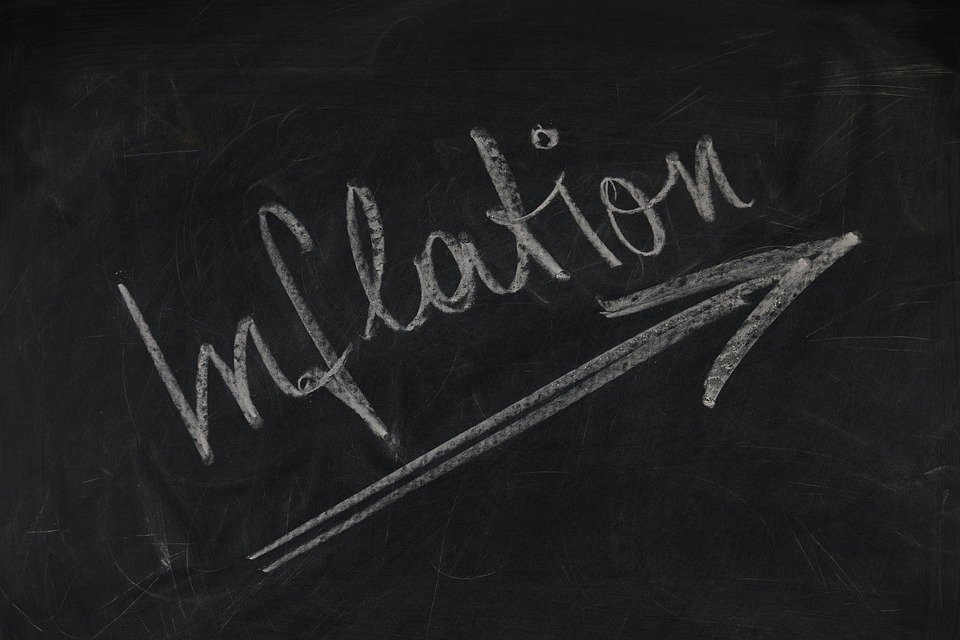As UK inflation hit a 30-year high of 5.5% in January, analysts have warned that it has the economy in a “chokehold”, with the peak yet to come.
According to the latest data from the Office for National Statistics, the 12-month UK Consumer Price Index was at its highest level since records began in January 1997. The last time it was higher than current levels was in March 1992 when it stood at 7.1%, based on historic modelling.
Laith Khalaf, head of investment analysis at AJ Bell, said: “Inflation is building and is now expected to reach a crescendo of over 7% in April, heaping pressure on consumers, businesses and savers.”
Although the Bank of England, which is expected to continue increasing interest rates on the back of better-than-expected UK job data, believes inflation will sink back down to 2% by 2024, Khalaf noted that inflation is, indeed, “unpredictable”.
“It is prudent to acknowledge that it might possibly tail off, though the bank’s forecasting capabilities haven’t exactly won any awards in recent times. The Ukraine crisis further muddies an already blurred picture.”
To find out more about how we can assist you with your Second Charge Mortgage please click here
Rupert Thompson, chief investment officer at Kingswood, said: “Inflation will head higher still over coming months, likely peaking at around 7.5% in April when the increase in the energy price cap feeds through. Today’s data leave a further 0.25% rate hike in March looking all but a done deal.”
Meanwhile, prices continue to rise while wages remain suppressed.
Chris Beauchamp, chief market analyst at IG Group, stated that markets “will be relieved that the pace of inflation increases appears to have moderated, but today’s further price rises mean consumer spending will keep getting squeezed, heightening the risk of tipping the economy into reverse”.
Rachel Winter, associate investment director at Killik & Co, said: “Inflation has the economy in a chokehold, with prices skyrocketing and consumers feeling significant pressure on their household budgets.
“High energy prices and increased shipping costs are key contributors to this inflationary pressure, but there are other causes for concern in the near term.
“Consumers are braced for next month’s rise in rail fares, growing mortgage payments and higher national insurance, and the Office for National Statistics confirmed yesterday that wages are falling in real terms because they are not keeping pace with inflation. All eyes are on Russia and Ukraine, where conflict would be likely to push oil and gas costs even higher.”
Sarah Giarrusso, investment strategist at Tilney Smith & Williamson, noted that the UK economy remains strong, growing by 7.5% in 2021, representing the strongest growth in the post-war period.
But the Omicron variant of Covid-19 has caused disruptions. “The employment data released yesterday (15 February) showed employment fell 38,000 in January. However, the labour market remains tight with vacancies at their highest level since records began in 2001 and an unemployment rate of 4.1%,” said Giarusso.
“Given this strength and high inflation some economists are expecting the Bank of England will have to be more aggressive than currently signalled by MPC members.”
Willem Sels, global CIO of HSBC Private Banking and Wealth, added that global factors such as supply chain bottlenecks leading to price pressures is likely to see UK inflation continue drifting higher.
“This affects everything from food and clothes prices to cars. There are more local UK factors too, in particular the 54% increase to the Ofgem energy price cap, which will feed through into CPI,” he explained.
“Job figures remain positive but are not enough to offset the squeeze on real household incomes. With inflation exceeding wage growth, real household income will probably fall by 2.5% this year.
“The silver lining? We think the Bank of England will hike interest rates less than the market fears, as it knows that the factors behind inflation are also the drivers behind lower real income, which threaten to limit economic growth. We expect the Bank rate to rise to 1.25%, lower than the markets’ expectation of around 1.75%.”
IG’s Beauchamp added: “Another Bank of England rate rise remains all but certain, but at least this slower pace of CPI increase means the more outlandish expectations will be dialled back. ‘Slow and steady’ are the watchwords for tightening on both sides of the Atlantic, it seems.”
Recent economic data has strengthened the case for more fiscal tightening in the coming months, with consensus expecting a third interest rate hike following the Bank of England’s meeting in March.
At Federated Hermes, the base case is for a further 0.25% increase, although a larger 0.5% rise “cannot be ruled out”, according to Silvia Dall’Angelo, senior economist at the international business of the firm.
“In the short term, the Bank might need to provide a stronger signal and bring some tightening forward to prevent second-round effects from elevated realised inflation against the backdrop of a tight labour market,” she said.
“As the year progresses, the trade-offs the bank faces might change, as high cost-push inflation, fiscal and monetary tightening weigh on the consumption outlook.”
By Alex Rolandi
Source: Professional Adviser
Discover our Second Charge Mortgage Broker services.

